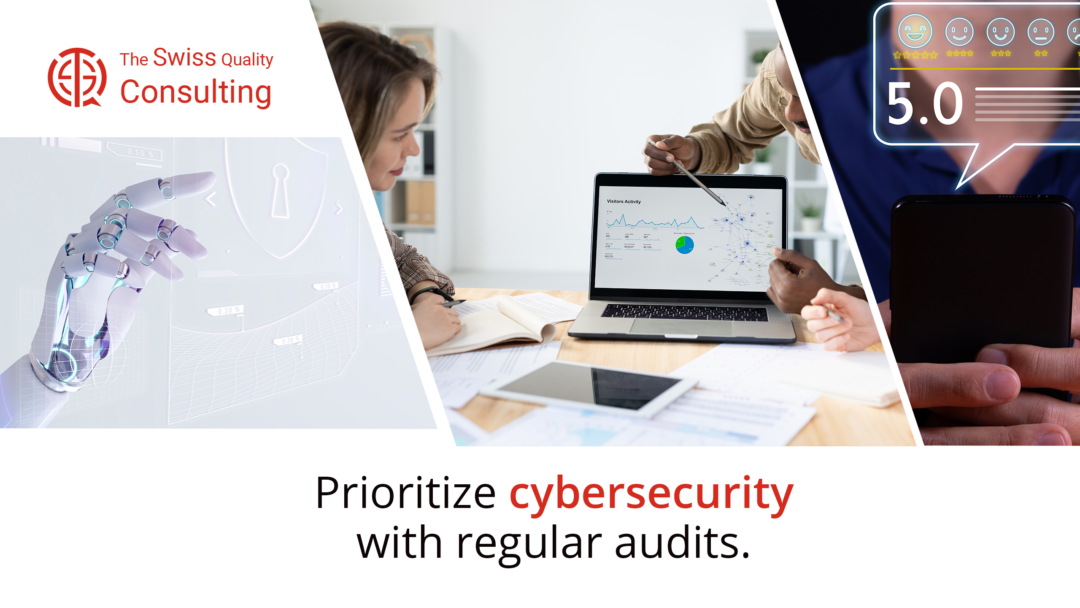Essential Strategies for Enhancing Digital Security and Protecting Business Assets
In an era where digital threats are increasingly prevalent, the maxim “Prioritize cybersecurity with regular audits” has become a critical mantra for business executives, mid-level managers, and entrepreneurs. Cybersecurity is no longer a mere aspect of IT strategy; it’s a fundamental business imperative. This article aims to provide an authoritative overview of why regular cybersecurity audits are essential and how they can significantly contribute to business success.
The Vital Role of Cybersecurity in Business Operations
Cybersecurity plays a mission-critical role in safeguarding a company’s vast array of digital assets, encompassing sensitive data, invaluable intellectual property, and the trust of their customers. In this era of digital transformation, even the smallest vulnerabilities can have far-reaching consequences, ranging from substantial financial losses to the weighty burden of legal liabilities. Moreover, the intangible yet invaluable asset of a company’s reputation is at stake. This underscores the indispensability of regular cybersecurity audits. These proactive assessments serve as a powerful shield, enabling businesses to not only pinpoint potential vulnerabilities lurking in the digital landscape but also to meticulously scrutinize their digital defense mechanisms. Furthermore, they ensure unwavering compliance with the ever-evolving web of data protection regulations, thereby bolstering the foundation upon which trust and success in the digital realm are built.
Integrating Generative Artificial Intelligence in Cybersecurity Audits
The integration of Generative Artificial Intelligence (AI) in cybersecurity audits represents a significant advancement in digital security strategies. AI can analyze vast data sets for unusual patterns, predict potential security threats, and recommend improvements. This proactive approach allows businesses to stay ahead of cybercriminals and react quickly to emerging threats.
Effective Communication: A Pillar in Cybersecurity Management
Effective communication stands as the linchpin of successful cybersecurity management. Within the realm of digital defense, it is paramount for businesses to articulate their cybersecurity policies with utmost clarity, leaving no room for ambiguity or misunderstanding. Moreover, conveying the profound significance of regular cybersecurity audits is not a mere formality but a strategic imperative. In this endeavor, comprehensive training and awareness programs emerge as indispensable tools. These initiatives serve as educational beacons, illuminating the path toward understanding for every member of the workforce. By actively engaging employees and helping them comprehend the pivotal roles they play in upholding digital security, these programs foster a sense of collective responsibility. Simultaneously, they elucidate the potentially dire consequences that security breaches can unleash, transforming the notion of cybersecurity from an abstract concept into a tangible and deeply ingrained commitment within the organizational culture. In doing so, businesses fortify their defenses from the inside out, recognizing that a well-informed and vigilant workforce is the first line of defense against the ever-evolving landscape of cyber threats.
Change Management and Cybersecurity Audits
In the context of change management, cybersecurity audits are crucial. As businesses undergo digital transformation, they must ensure that new technologies and processes do not introduce vulnerabilities. Regular audits provide insights into the security implications of changes and help in making informed decisions about digital upgrades.
Executive Coaching for Cybersecurity Leadership
Executive coaching plays a pivotal role in developing leadership skills focused on cybersecurity. Through coaching, leaders can learn to prioritize digital security in their strategic planning, understand the latest cybersecurity trends, and develop effective risk management strategies. They also gain insights into creating a culture of security awareness within the organization.
Project Management and Cybersecurity Audits
In project management, integrating cybersecurity audits into the project lifecycle is essential. These audits help project managers identify and mitigate digital risks in each phase of a project, ensuring that security considerations are addressed from the onset and throughout.
Conclusion Prioritize cybersecurity with regular audits
In conclusion, prioritizing cybersecurity with regular audits is imperative for modern businesses. It not only protects against digital threats but also supports overall business integrity and continuity. By incorporating advanced technologies like AI, fostering effective communication, integrating cybersecurity in change management, focusing on leadership development, and embedding security in project management, businesses can build a robust cybersecurity posture.
#Cybersecurity, #DigitalSecurity, #BusinessProtection, #AI, #RiskManagement









